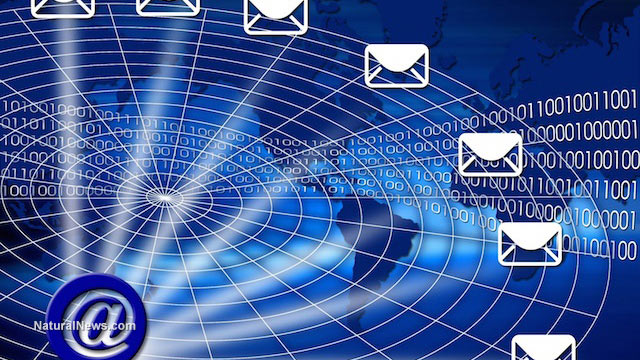
So-called “Email Privacy Act” actually a Big Brother Orwellian email spy bill that requires corporations to violate your privacy in the name of “security”
Tuesday, August 18, 2015 by Chris Draper
http://www.nationalsecurity.news/2015-08-18-so-called-email-privacy-act-actually-a-big-brother-orwellian-email-spy-bill-that-requires-corporations-to-violate-your-privacy-in-the-name-of-security

The Fourth Amendment is under attack in an age of electronic surveillance and expanding government. The Email Privacy Act, H.R. 699, and its Senate companion bill S. 356, is marching toward bipartisan agreement in Congress. The legislation would give government agencies access to your email, text messages and documents without a warrant from storage systems like “the Cloud.” A broader interest in privacy rights has received national attention in the last few years, since Edward Snowden revealed that the NSA was spying on American citizens. While Big Brother isn’t directly knocking on your front door, Big Brother is knocking on the door to your email account.
The bills tiptoes around the the Fourth Amendment, which prohibits unreasonable searches and seizures, as well as requires a warrant to be judiciously sanction. The Email Privacy Act would allow state agencies to issue judgeless administrative subpoenas to collect private data stored on remote devices. It encourages Big Government to target minorities that are considered a “threat,” including religious practitioners, non-profit organizations and government critics.(1)
Warrants are judicial acts, so they cannot be issued by law enforcements and bureaucrats. Even the Email Privacy Act acknowledges this fact. Nevertheless, the bills would violate privacy rights by authorizing extrajudicial administrative subpoenas.(1)
Electronic Communication Privacy Act
The Electronic Communication Privacy Act was written in 1986, prior to development of the World Wide Web. The bill was intended to protect the privacy of the few Americans who were using electronic mail. Storing email after it was sent was a mild nuisance at the time, since online storage was limited and costly. The government, therefore, cooked up a law that would allow them to obtain electronic emails without a warrant. They could collect data on remote devices or third-party sources, provided that the data was over 180 days old. The Electronic Communication Privacy Act has been resuscitated in the form of the Email Privacy Act.(2)
There are no limits to the privacy rights enshrined by the Fourth Amendment, and it was not meant to be updated with the rise of various technologies. Regardless, the Email Privacy Act allows the subpoena of every single citizen and organization, excluding email storage providers.
Data gathered from third-party sources
If there is a time to delete personal emails, documents and text messages that you would like kept private, that time is now. Unfortunately, deleting your private emails may not completely decimate that information. The government can grant itself access to your data without a search warrant provided that it has crossed U.S. electronic devices at some time. If you sent an email to Canada or Iceland in the last six months, for example, the government would have access to that email. If you delete the email, the government can still retrieve it, provided that copies of the email were picked up by third-party sources. These third-party sources would violate your privacy in the name of security.(3)
This last June, members of Congress voted 255-174 for an amendment by Representatives Thomas Massie, R-Ky., and Zoe Lofgren, D-Calif., which would prohibit intelligence agencies from drawing on federal funding to collect data about American citizens. It was the second time within the last two years that the House has voted on the bill. This bill closely followed the passing of the USA Freedom Act, which is ostensibly supposed to end the NSA’s collection of phone records.(3)
The right to private email correspondence without fear of government surveillance is a basic extension of the Fourth Amendment. Unfortunately, the bill has the real potential for bipartisan passage in Congress even though it stands in direct contradiction to the Fourth Amendment. Big Brother wants to keep tabs on you. Judgeless administered subpoenas must be stopped.
Sources include:
Tagged Under: Tags: Big Brother, Email Privacy Act, Glitch, government surveillance, privacy violation, security, spy bill






